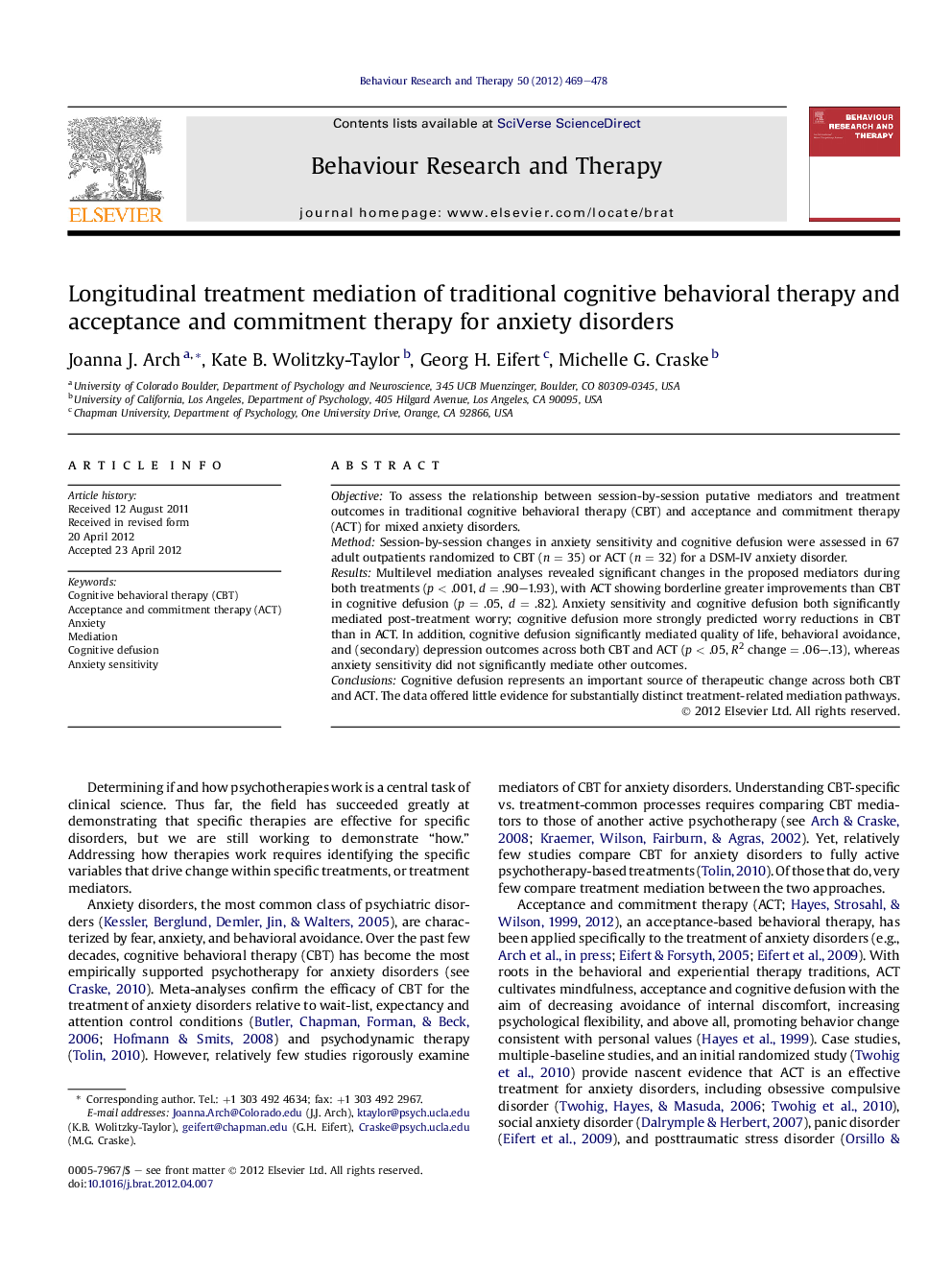| Article ID | Journal | Published Year | Pages | File Type |
|---|---|---|---|---|
| 901939 | Behaviour Research and Therapy | 2012 | 10 Pages |
ObjectiveTo assess the relationship between session-by-session putative mediators and treatment outcomes in traditional cognitive behavioral therapy (CBT) and acceptance and commitment therapy (ACT) for mixed anxiety disorders.MethodSession-by-session changes in anxiety sensitivity and cognitive defusion were assessed in 67 adult outpatients randomized to CBT (n = 35) or ACT (n = 32) for a DSM-IV anxiety disorder.ResultsMultilevel mediation analyses revealed significant changes in the proposed mediators during both treatments (p < .001, d = .90–1.93), with ACT showing borderline greater improvements than CBT in cognitive defusion (p = .05, d = .82). Anxiety sensitivity and cognitive defusion both significantly mediated post-treatment worry; cognitive defusion more strongly predicted worry reductions in CBT than in ACT. In addition, cognitive defusion significantly mediated quality of life, behavioral avoidance, and (secondary) depression outcomes across both CBT and ACT (p < .05, R2 change = .06–.13), whereas anxiety sensitivity did not significantly mediate other outcomes.ConclusionsCognitive defusion represents an important source of therapeutic change across both CBT and ACT. The data offered little evidence for substantially distinct treatment-related mediation pathways.
► We examined session-by-session mediators in ACT and CBT for anxiety disorders. ► We investigated anxiety sensitivity and cognitive defusion as mediators. ► Both improved during treatment, to a greater extent in ACT than CBT. ► Anxiety sensitivity significantly mediated only 1/5 outcomes in ACT and CBT. ► Cognitive defusion significantly mediated all but one outcome in ACT and CBT.
